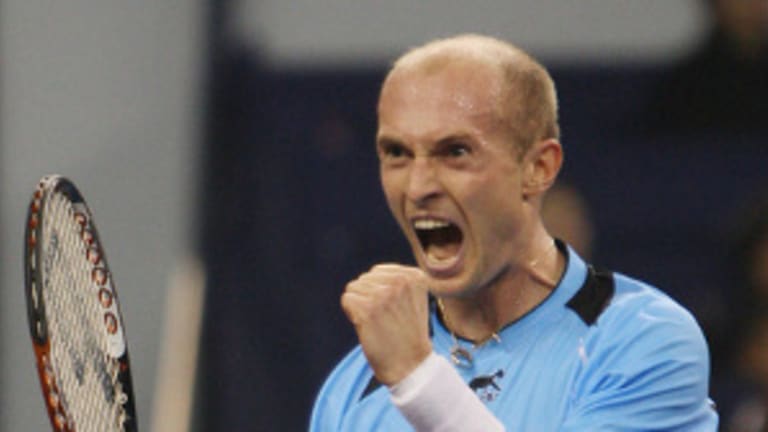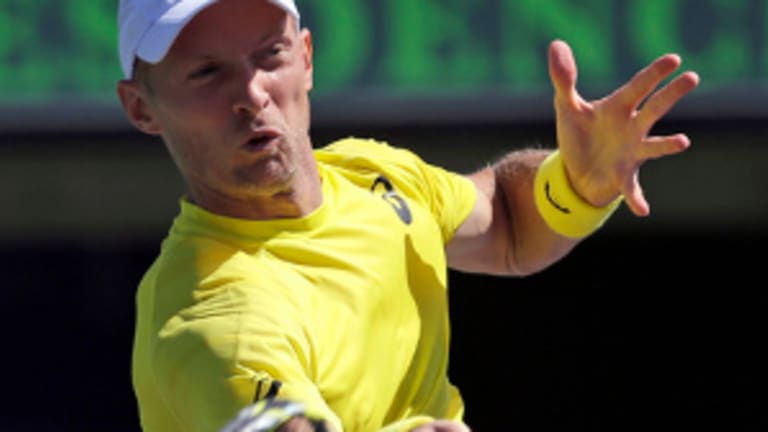LONDON—There was no grand farewell when Nikolay Davydenko, who won the ATP World Tour Finals in 2009, retired from professional tennis in October. He might have picked up his racquet one last time as a token gesture and bid adieu on the court at the Kremlin Cup in Moscow, for example, at least receiving a warm hand from his home public.
But that wasn’t Davydenko.
He was, as Roger Federer put it, more of a “quiet” guy, unlike the man he replaced as the top dog in Russian tennis, Marat Safin. Davydenko let the tools of his trade do most of the talking.
And did he ever possess a game.
Davydenko’s return, ability to take the ball early off both sides, and speed made him arguably one of the most watchable players on the tour. When he was firing, few could cope. According to the ATP, his 6-5 mark against Rafael Nadal gives him the distinction of being the lone player to beat the Spaniard five or more times and possess a winning head-to-head record. He also finished 4-6 against Andy Murray and posted two victories each over the other members of the Big Four, Federer and Novak Djokovic.
With 21 titles, the workhorse earned six more than Safin.
“Nikolay was an unbelievably good player,” Federer told TENNIS.com at the World Tour Finals. “If you look at his results, when he was on, he could do things not many players could do—take it out of your hand and just fire away.
“The return, forehand, backhand, he could just dominate. He was one of the fastest and best players to go down the line forehand and backhand. I always enjoyed the challenge against him.”
Five years ago at the World Tour Finals marked Davydenko’s apex, as the Russian ended his 0-12 skid against Federer in the semifinals before toppling then reigning U.S. Open champ Juan Martin del Potro in the final, all the while backed by his bubbly wife and sometime coach, Irina. To this day he’s the only winner of the season-ending championship not to have reached a Grand Slam final, a fact that probably reveals more about Davydenko’s tendency to succumb mentally during key moments than anything to do with flaws in his game.

